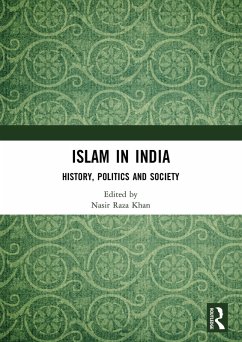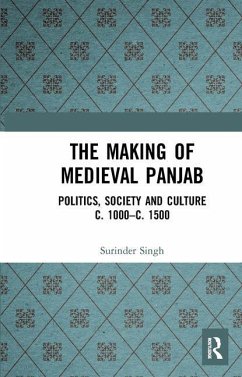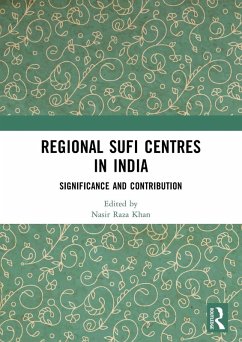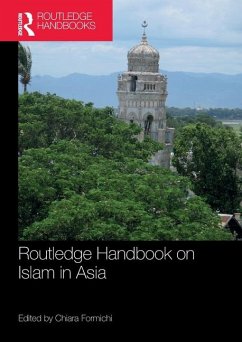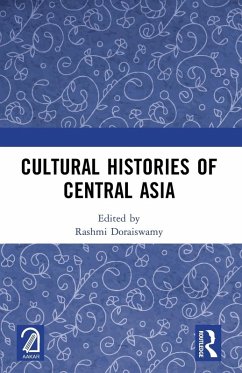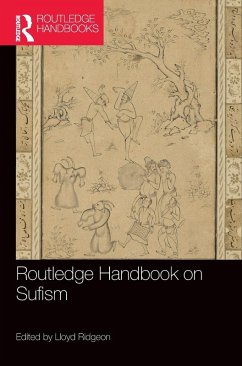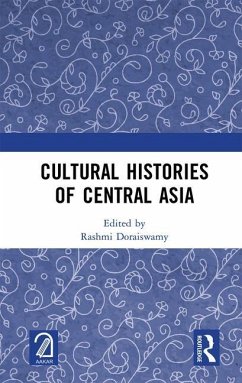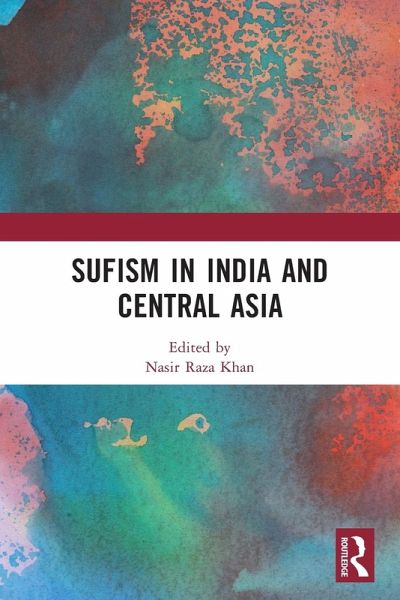
Sufism in India and Central Asia
Versandkostenfrei!
Versandfertig in 6-10 Tagen
43,99 €
inkl. MwSt.
Weitere Ausgaben:

PAYBACK Punkte
22 °P sammeln!
Sufism in India and Central Asia is an attempt to put into perspective the relevance of Sufism - the concept and teaching, and to provide a realistic assessment of its role in India and Central Asia. The people of these regions with different ethnic backgrounds, cultures and languages have been intermingling for many centuries, as seen in the cross-current exchanges of religious ideas and belief. The word Sufism, popularly known as mysticism is most likely derived from the Arabic word suf (meaning "wool"), more specifically it means "the person wearing ascetic woollen garments." Sufism is deep...
Sufism in India and Central Asia is an attempt to put into perspective the relevance of Sufism - the concept and teaching, and to provide a realistic assessment of its role in India and Central Asia.
The people of these regions with different ethnic backgrounds, cultures and languages have been intermingling for many centuries, as seen in the cross-current exchanges of religious ideas and belief. The word Sufism, popularly known as mysticism is most likely derived from the Arabic word suf (meaning "wool"), more specifically it means "the person wearing ascetic woollen garments." Sufism is deeply rooted in Islam and its development began in the late 7th and 8th centuries. The present volume is an attempt to look for answers to questions in relation to Sufism in India and Central Asia and to evaluate its relevance in the contemporary period. A group of distinguished scholars from India and Central Asia have contributed papers to this volume.
This volume will be useful to students and researchers working on social and cultural aspects of India and Central Asia.
The people of these regions with different ethnic backgrounds, cultures and languages have been intermingling for many centuries, as seen in the cross-current exchanges of religious ideas and belief. The word Sufism, popularly known as mysticism is most likely derived from the Arabic word suf (meaning "wool"), more specifically it means "the person wearing ascetic woollen garments." Sufism is deeply rooted in Islam and its development began in the late 7th and 8th centuries. The present volume is an attempt to look for answers to questions in relation to Sufism in India and Central Asia and to evaluate its relevance in the contemporary period. A group of distinguished scholars from India and Central Asia have contributed papers to this volume.
This volume will be useful to students and researchers working on social and cultural aspects of India and Central Asia.





